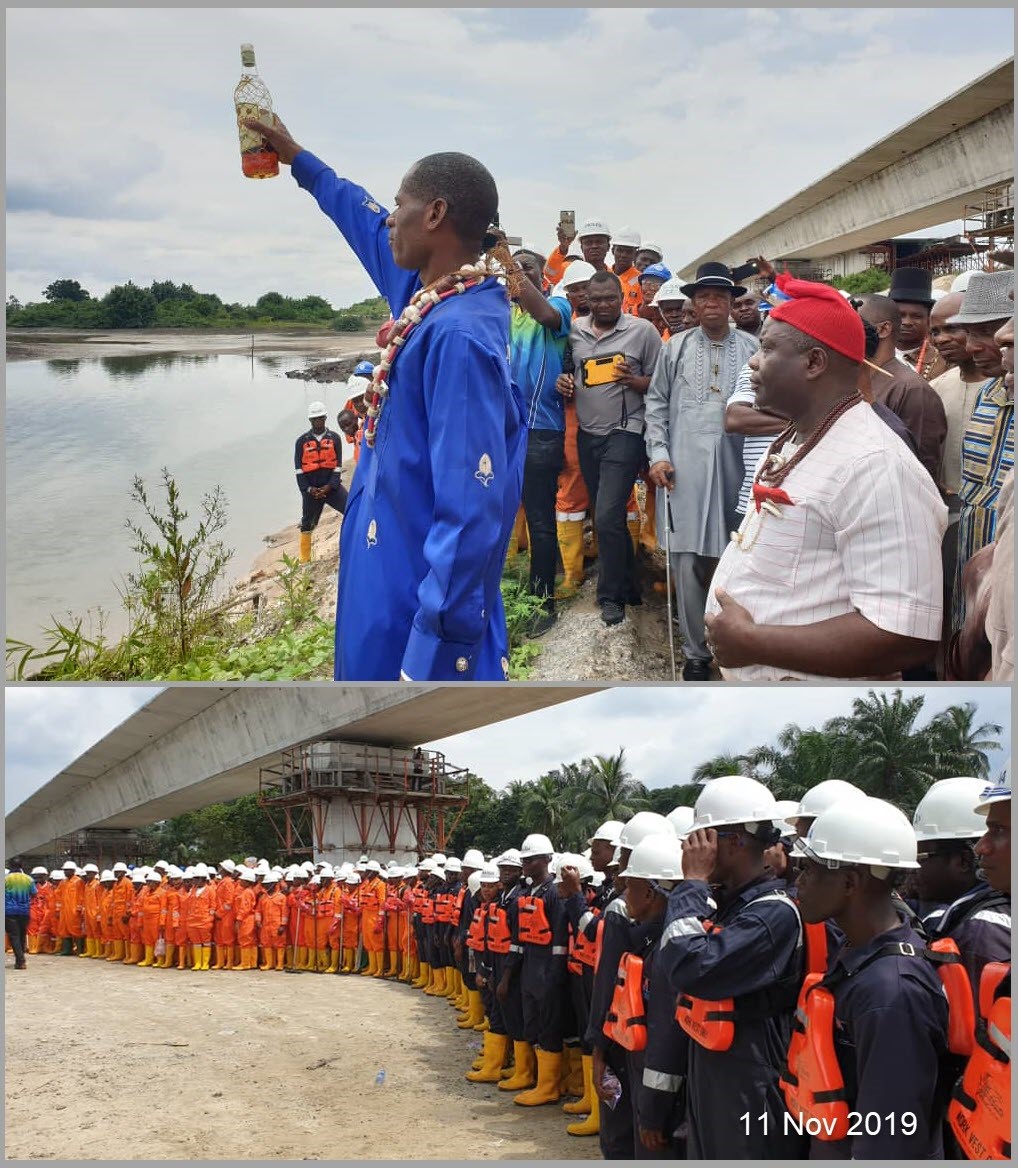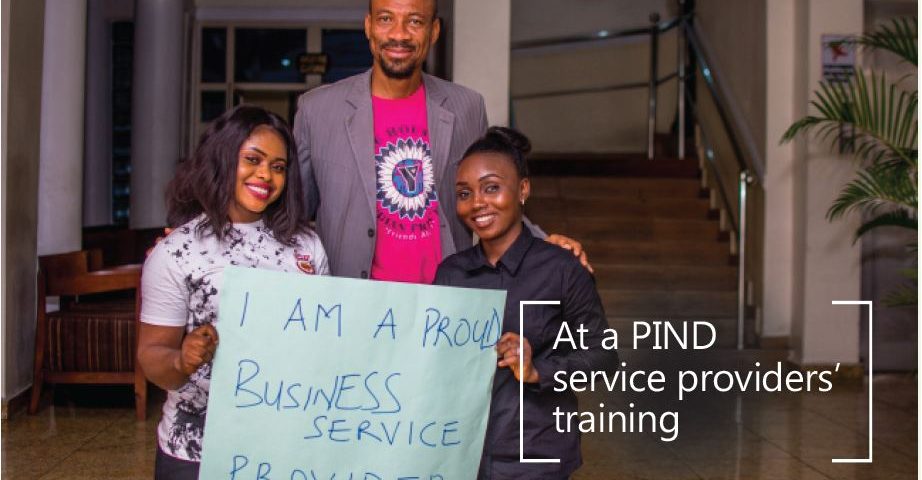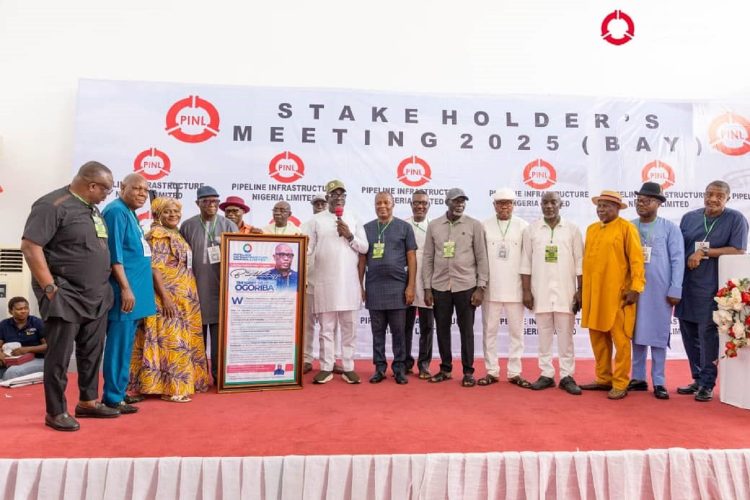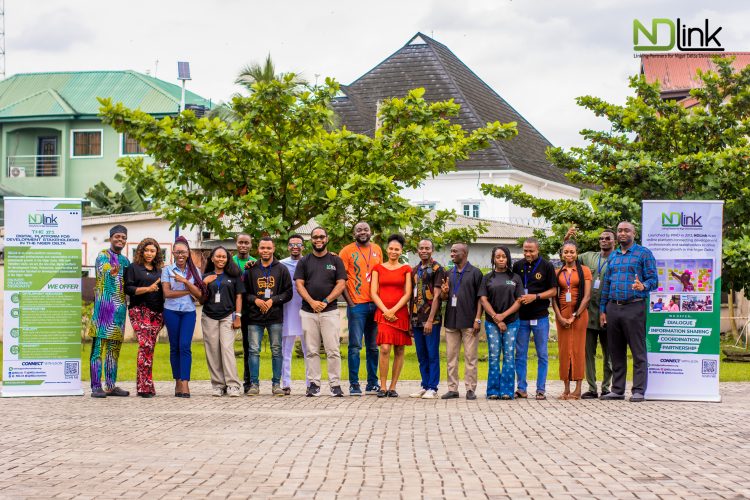
Official Commissioning of the Phase 2 Bodo Cleanup Project
November 20, 2019
Download: Protection from Internet Falsehoods and Manipulation Bill, 2019
November 25, 2019
2018 was to PIND Foundation a year of improving economic opportunities that reduced poverty and conflict, with the adoption of different approaches against what has been deployed traditionally. In this annual report, we give excerpts of how we achieved core service initiates, using sustainable and inclusive human capital development wheels that gave us higher undertaking aptitudes to identify, inspire and empower individuals, organizations and systems within the productive sectors, to cascade change among peers who then adopt and spread the benefits of our exertions system-wide.
With PIND Economic Development Centres (EDCs) in Warri, Delta State and Port Harcourt, Rivers State serving as resource and coordination hubs for us and our partners to develop and implement projects aimed at reducing poverty in the Niger Delta through income, jobs and stability; we accumulated rich data resources and deep insights about the region that positively influenced our projects design and aided application of systemic analysis in addressing the innate constraints in the broader development eco-system. From the EDCs, we conducted numerous formative researches on growth sectors and issues pertaining to human capital development and wealth creation in Niger Delta.
Rivers, PIND focuses on job creation for youths to tackle crime
Connecting the dots to unlock richness in the Niger Delta, the Foundation commissioned an assessment of the cocoa value chain in the Niger Delta and identified different types of support service providers (and related products) required by farmers and SMEs to increase their productivity and income by providing training and other ancillary supports. PIND trained lead farmers, aquaculture service providers (ASPs), business service providers (BSPs), agro-equipment fabricators, agro-dealers and input companies from the farming associations on the best agricultural and pond management practices at demonstration plots/ponds. They, in turn, trained farmers’ association members. PIND trained Local fabricators and masons produced, promote and sold several efficient technologies such as those for fish smoking, palm oil harvesting, and processing while subjects of market linkages, finance, and business advisory services to hand-picked Niger Delta-based (MSMEs), were taken on by the proficient Business service providers.
As part of effort to accelerate the spread of benefits to the hard to reach communities, in the reporting year, PIND trained 153 fish smokers and processors (76 women) from the remote coastal communities in Bayelsa and Ondo States on how to construct and use the Chorkor oven which spurred interest in its use for business by the processors. We began exploring more cost-effective transport options for bricks for the Chorkor oven, as well as other farm products from smallholder farmers in this hard to reach seaside communities. Through field trials and assessments, the foundation discovered a last-mile transport solution (AgRover) that could transport farm products more efficiently over challenging terrain and bad road networks at lower costs to both smallholder farmers and transport service providers using a ‘rental’ or ‘lease-to-own’ model. The assessment was done in collaboration with cocoa farmers in Ondo State, Conservation Alliance Nigeria (CA-NIG), and Mobile Agricultural Power Solutions Limited (MAPS) – the equipment manufacturer.
Besides our work in the hard to reach communities, PIND trained lecturers from five universities (University of Benin; Federal University of Technology, Akure; Ambrose Alli University, Ekpoma; Rivers State University of Science and Technology; and Abia State University) in the Niger Delta on energy efficiency in buildings and renewable energy alternatives in September, 2018, as part of its Appropriate Technology Development (ATED) Centre’s program on energy efficiency. Numerous stakeholder groups of over 300 persons were hosted in different demonstration events and workshops on appropriate technologies, recording 456 visitors that learned about new appropriate technologies adapted to suit local needs.
In 2018, we placed women and girls at the heart of our human capital development activities. Correspondingly, women were exposed to innovations around sustainable building and new ecofriendly appropriate technology practices through tours and events at PIND’s ATED Centre. Also, 289 women from CSOs and BMOs received key organizational strengthening resources and training packages to better serve their constituents and implement effective community development projects. 1,271 peace agents were recorded as women who facilitated conflict mitigation in the reporting year. PIND foundation made sure that female smallholder farmers and SMEs were reached with information on good agricultural and business practices, use of efficient technologies and business advisory services through aquaculture, cassava, palm oil value chains, and business linkages projects; relaying skills from side to side good WASH in Schools (WIN) promotions.
Furthermore, our foundation’s Energy Efficiency and Renewable (EER) initiative assessed the potential and readiness of four coastal communities Ilaje local government area of Ondo State that are unserved with electricity – Awoye, Molutehin, Gbagira, and Mese- to partner on a one-year private sector-led pilot of a commercial mini-grid. The harnessed wheels for power supply are at most, reliable and affordable; and improving the lives of the receivers.
Opinion: Energy Access Model for Off-grid Communities in Niger Delta
Finally, PIND successfully created and launched CAPABLE training modules for Peace Building, to strengthen the impacts of peace agents and organizations in the Niger Delta. PIND’s work to ensure that new and existing peace agents were better equipped to engage in interventions resulted in the conduct of 40 responses to mitigate and resolve conflicts in communities by the P4P Network in 2018. Peace monitors in P4P states integrated Short Message Service (SMS)-based Early Warning and Early Response (EWER) infrastructure to aid conflict analysis. The data forewarns a subset of the P4P called the PREVENT team, to identify conflicts that could escalate into violence and with that, the team works towards preventing or mitigating them. Akwa Ibom, Edo, Ondo and Rivers States P4P chapters, involved active mass media messaging on radio and television ahead of the 2019 Nigerian elections, motivating more persons to take a stand for peace. Cumulatively, the total number of people reached with P4P facilitated media messages within and outside the Niger Delta is estimated to be 45 million.









